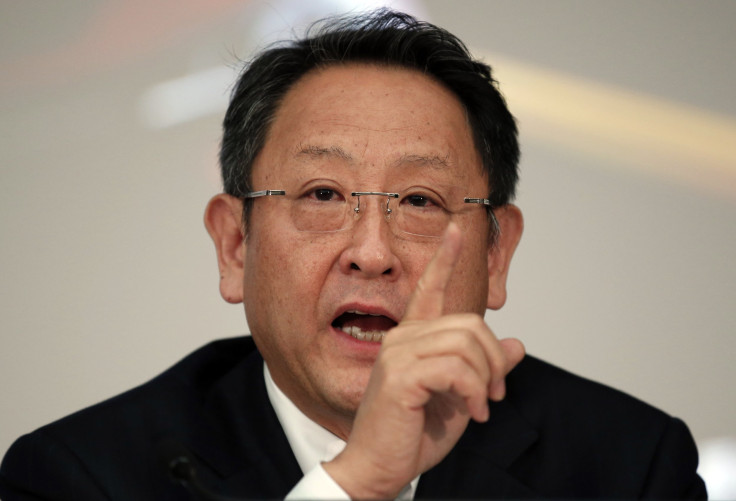Toyota Takes A Pause: Will Likely Build Corolla Factory In Mexico, But It's Cautiously Re-Evaluating Move

Toyota Motor President Akio Toyoda took the helm of the world’s top automaker five years ago amid an industrywide post-recession crash and Toyota’s costly global recall crisis that sent the Corolla sedan maker into an operating loss for the first time in seven decades. Since then, Toyota is seeing better times, but the company’s president is reportedly taking a cautious approach to expanding production capacity.
Toyoda, whose grandfather founded Toyota in the 1930s, has ordered company officials to re-evaluate plans to open a second manufacturing facility in Mexico, a country that’s benefitting from a recent influx of automotive activity as carmakers seek lower labor costs just south of the United States, the world’s second-largest auto market.
"There’s absolutely no unused capacity lying around anywhere in North America? Installing production capacity to try to trigger growth is the old way that got us in trouble before," a top company executive told Reuters about Toyota’s eleventh-hour re-examination of plans to break ground by 2016 on a new central Mexico factory to produce the Corolla, the world's best-selling sedan.
The verdict seems to be the company will move forward with the plan, but a final decision isn’t likely until early 2015, two company executives told Reuters on condition of anonymity. The factory could be smaller than intended to save costs, but officials say local demand for Toyota cars in Mexico warrants some form of capacity expansion.
Toyota currently assembles its Tacoma pickup truck near Tijuana from break-down kits. Under the North American Free Trade Agreement, Toyota pays less to export the assembled Tacoma to the U.S. and Canada from Mexico and also benefits from the lower labor and operating costs compared to the U.S. and Canada, where Toyota operates nine facilities. Mexico also benefits from free-trade agreements with other Latin American countries, which makes exporting to them less costly.
“Mexico is becoming a key hub for auto exports and is expected to quickly grow in global auto significance,” said a recent research note from Wood Mackenzie, an industry consultancy group. “The opening of the first luxury-car plants by Audi, Nissan-Infiniti, Mercedes-Benz and BMW in the coming years demonstrates automakers’ confidence in Mexico's capability.”
The recent influx of luxury cars is a positive sign for Mexico, which has traditionally been a platform for low-cost, low-margin vehicle production. But recent announcements from German luxury carmakers Bayerische Motoren Werke AG (FRA:BMW) and Audi AG (FRA:NSU) that they would set up shop in Mexico indicates the automotive labor force has developed enough to attract more upscale production.
Other companies that have announced plans to expand to Mexico or have started production there include Kia Motors Corporation (KRX:000270), Honda Motor Co. Ltd. (TYO:7267), Nissan Motor Co. Ltd. (TYO:7201) and Mazda Motor Corp. (TYO:7261).
Toyota’s re-evaluation comes as the automaker expects net profit from global sales to drop 2.4 percent in the current fiscal year through March 2015 as foreign exchange activity (the sales in foreign currencies that must be converted back into Japanese yen) will work against it this year compared to last year.
© Copyright IBTimes 2024. All rights reserved.












